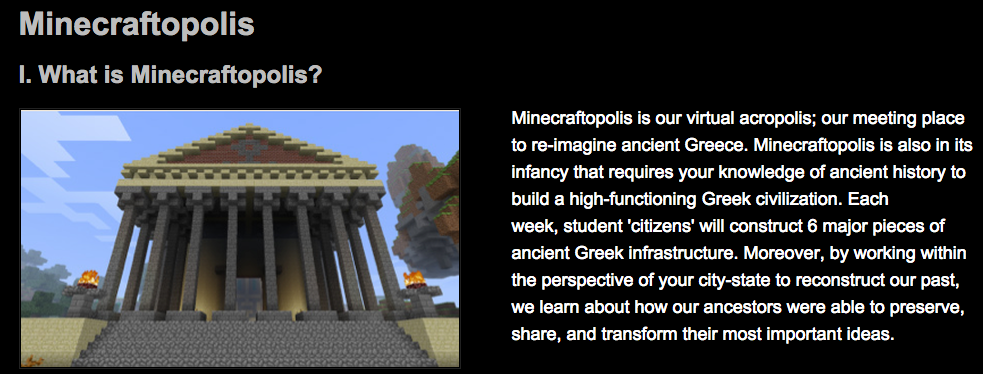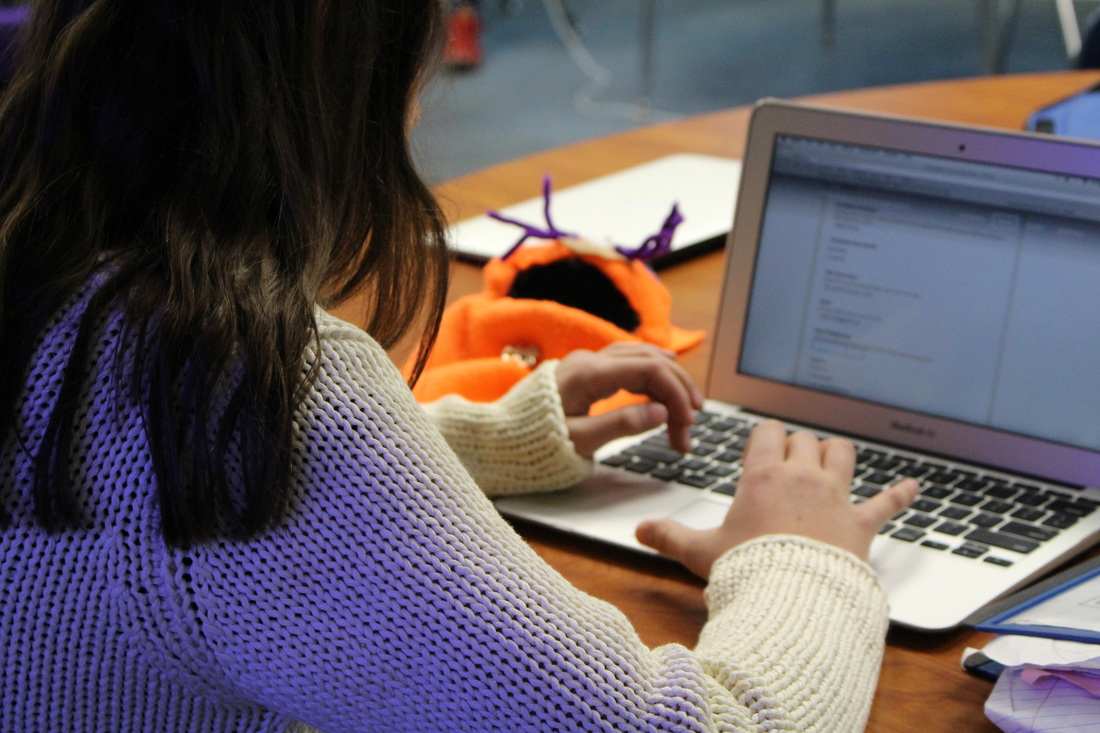I realised that teaching history the way I want to teach it requires me to help students do research. I've written before about my project-based approach to teaching history, so I know that's not new. However, the fundamental structure and success of my project-based classroom rests almost entirely on my students' ability to find good sources, synthesise the information, and use it to create original writing.
Right now, we're doing a final unit on Ancient Greece. There are two simultaneous threads that we're weaving together for the final project: the Minecraftopolis building and screen-capture, and the Odyssey retelling.
However, to be successful, they must also be historically accurate. That means starting with Fibonacci's Sequence and the Golden Ratio. Students had to learn why it mattered, as well as how to apply it to their buildings in Minecraft. They also had to research building materials, because a large part of their final product will be defending the historical accuracy of that building.
The other project is the Odyssey project. We read Book One in the original Greek. Turns out that 6th graders do just fine with Homer when you give them a scaffolded worksheet and time to talk it through with a group. Then I have them randomly draw an episode from The Children's Homer and transform that into a puppet play. That lets them jigsaw The Odyssey, but also show their ability to accurately represent life in Ancient Greece. And use puppets.
They have to do some research to be successful here too - they are looking at different versions of The Odyssey as well, to figure out the most historically accurate way to render the text into puppet play. They are researching the role of women, as they noticed that almost all of the women in The Odyssey are monsters, or paragons of female virtue.
But that's the thing about these two final projects: there is no formal research component. They research something when they need specific information, and they share it with their group through a collaborative Google Document.
The reason that works so well is that I've spent the year teaching the following skills: choosing appropriate research questions, finding and vetting the credibility of sources, paraphrasing and directly quoting original material, the format of quoting and citations, writing synthesis paragraphs that are clear and concise, using Advanced Search as well as quotation marks in search phrases to find specific documents, powerpoints, images, and videos, how to scan and skim sources to find specific information, how to use the links at the bottom of the Wikipedia article to find more specific and detailed information, and how to do collaborative research using a collaborative document in Google Drive.
So research just becomes part of the natural rhythm in our classroom; students have a question, so they research it. Groups need information, so they divide and conquer.
There are lots of things I would like to do better next year. But I think this is the first year I've taught research in a way of which I'm proud.




 RSS Feed
RSS Feed
